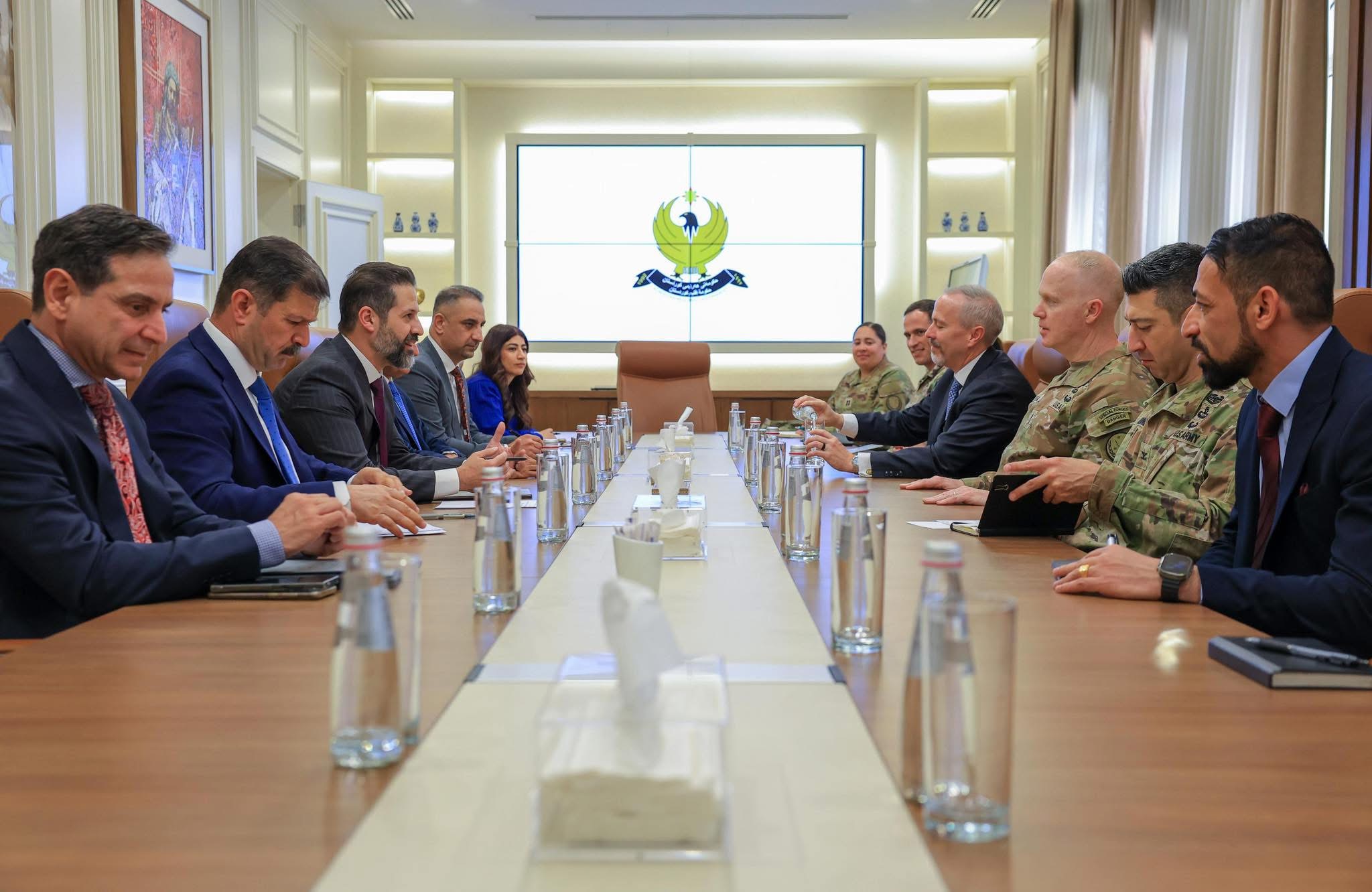Kurdistan Region Deputy Prime Minister Qubad Talabani welcomed General Kevin Lehi, Commander of the International Coalition Forces in Iraq and Syria, to Erbil on May 21, 2025. The high-level meeting, attended by key Kurdish military officials and U.S. diplomatic representation, focused on regional security developments and ongoing defense reforms.
Regional Security Concerns Take Center Stage
The talks assembled an impressive array of leadership, with Staff Major General Bakhtiar Mohammed Siddiq, Secretary General of the Ministry of Peshmerga, and Staff Major General Omer Salih, Commander of Forces 70, accompanying Deputy Prime Minister Talabani. U.S. Consul General Steve Bittner also participated in the discussions, highlighting Washington’s commitment to its relationship with Kurdistan’s security establishment.
During the meeting, participants conducted a comprehensive review of the evolving security landscape across Kurdistan, Iraq, and the broader Middle East. The timing proves particularly significant as regional powers continue recalibrating relationships following recent geopolitical shifts. Counter-terrorism cooperation remained a priority topic, though specific operational details were not disclosed.
Peshmerga Reform Process Gains Momentum
A substantial portion of the meeting focused on reviewing progress on the memorandum of understanding (MoU) regarding the ongoing restructuring of Peshmerga forces. This reform initiative represents one of the most ambitious military modernization programs in the region, aimed at transforming the Peshmerga into a more unified, professional fighting force.
The reforms address longstanding organizational challenges within Kurdistan’s military structure, including standardizing training protocols, modernizing equipment, and streamlining command structures. General Lehi reportedly expressed the coalition’s continued commitment to supporting these efforts through technical assistance and specialized training programs.
“The professionalization of our security forces remains a cornerstone of our defensive strategy,” a Ministry spokesperson noted following the meeting. “The ongoing partnership with international allies ensures we maintain the capability to address both current and emerging threats.”
Diplomatic Implications for Kurdish Foreign Relations
The meeting underscores Kurdistan’s continued importance as a strategic partner within the international coalition’s regional security framework. For Talabani’s administration, maintaining robust relations with international partners represents a key diplomatic objective amid the complex power dynamics of the Middle East.
Analysts note that such high-level engagements reinforce Kurdistan’s role as a stabilizing influence in a volatile region. The presence of the U.S. Consul General signals continued American interest in maintaining close security cooperation with Kurdish authorities, despite shifting priorities in Washington’s broader Middle East policy.
As the meeting concluded, officials emphasized their shared commitment to regional stability and the ongoing fight against extremist elements threatening peace across Iraq and Syria. Both sides agreed to maintain regular communication channels and continue their partnership on security matters of mutual concern.


